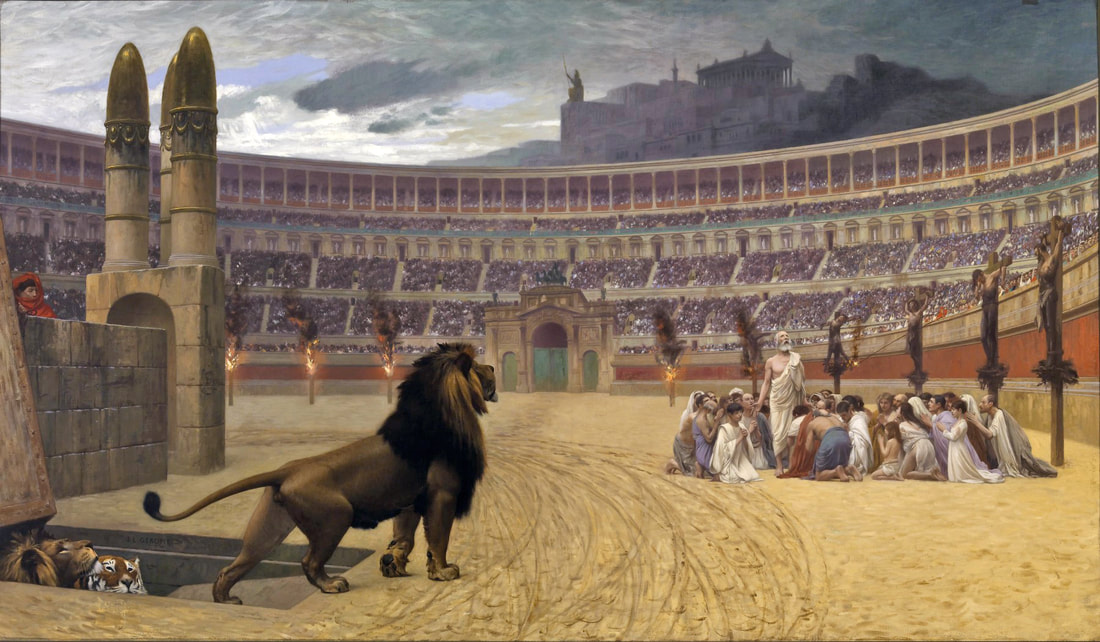Under Decius’s rule, Christians throughout the empire suffered terribly. This, which John Foxe listed as the seventh of the great Roman persecutions, is known as the Decian persecution. It began in AD 250 when the emperor decreed mandatory participation in a supplicatio. A supplicatio was a sacrifice offered to the pagan gods after important military victories or in times of national threat. Typically, Roman citizens offered a sacrifice of wine (similar to the Jewish drink offering) before partaking in the meat of a sacrificial animal, usually a bull or a goat. A supplicatio’s intended purpose was twofold: to gain favor from pagan deities and to strengthen the empire’s collective resolve. Faithful Christians would not willingly sacrifice to pagan gods.
Until Decius’s rule, persecution of Christians had been confined to specific areas and were sporadic in nature; however, the Decian persecution affected believers across the Roman Empire. All Roman citizens, who numbered between 50 and 60 million, were required to participate in the supplicatio. Each participant was given a libellatici, that is, a certificate of compliance to prove he had obeyed the emperor’s edict. Christians who defied the edict were subject to torture, imprisonment, and death. Fabian, bishop of Rome, was the first Christian of prominence to suffer death at the hands of Decius.
Wishing to escape the Roman government’s wrath, some Christians fled to safer locations. Others bribed local officials who were willing to issue falsified documents for a fee. Other Christians simply yielded to Rome’s demands; however, believers who participated in the official sacrificial ceremonies were generally excommunicated.
While there are no reliable records indicating the number of Christians who were martyred during the Decian persecution, the Roman government’s mistreatment of dissenters was barbaric and widespread. Emperor Decius may have harbored a special hatred toward Christians, as Philip the Arab, whom Decius had battled, was said to have been a Christian convert.
Not all historians believe Decius’s primary motivation in issuing his infamous decree was to harass Christians. There is no denying the measure of the emperor’s extreme hostility toward believers, but some historians contend his actions were intended, first and foremost, to bolster unity within the vast reaches of the Roman Empire. While Decius’s motivations are debatable, there is no denying his persecution resulted in unspeakable cruelty and the forfeiture of countless lives.
Many Christians preferred death to satisfying Rome’s blasphemous demands. One such Christian, whose name was Nichomachus, was brought before Roman officials and ordered to bow to Rome’s pagan deities. Knowing torture and death awaited him, the condemned man replied, “I cannot pay that respect to devils, which is only due to the Almighty” (Foxe’s Book of Martyrs, “The Seventh Persecution, Under Decius”).
James, the half-brother of our Lord Jesus Christ and a pillar in the early church, wrote, “Count it all joy, my brothers, when you meet trials of various kinds, for you know that the testing of your faith produces steadfastness. And let steadfastness have its full effect, that you may be perfect and complete, lacking in nothing” (James 1:2–4, ESV). Just as gold and silver are purified by intense heat, persecution is the “refiner’s fire” that strengthens the church. No one enjoys mistreatment, and suffering is something we all wish to avoid, but the “testing” of our faith produces a faith that endures—a pure, lasting faith that brings honor and glory to our Lord Jesus Christ. As to suffering brought about by trials, calamities, and persecution common among believers, “Weeping may tarry for the night, but joy comes with the morning” (Psalm 30:5b, ESV).

 RSS Feed
RSS Feed
























































